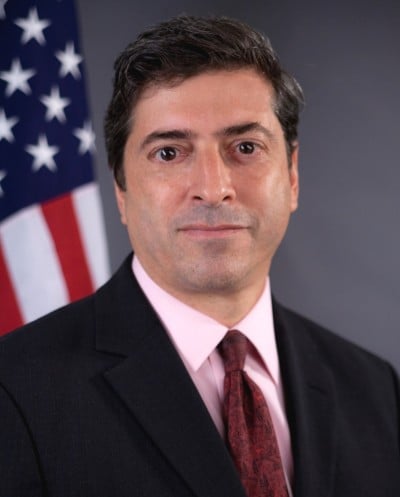Former SEC Enforcement Head Joins Wall Street Law Firm

Robert Khuzami, the former head of the U.S. Securities and Exchange Commission’s enforcement division, has joined Kirkland & Ellis, a multi-billion dollar law firm that represents major corporations and banks. He signed a two-year contract with the firm, which will pay him over $5 million per year.
Khuzami will “handle internal investigations, SEC enforcement cases, white-collar criminal matters and crisis management” at the firm, which makes nearly 2 billion dollars a year in gross revenue and represents clients such as Bank of America, IMG, Morgan Stanley, and UBS.
Khuzami’s decision to join the law firm was first reported in the New York Times last month, in a piece entitled “A Legal Bane of Wall Street Switches Sides.” In reality, far from being a “Bane of Wall Street,” Khuzami has consistently avoided any serious prosecution of the Wall Street executives responsible for the 2008 financial crash. Khuzami’s change of job is not an act of “switching sides”, but rather a blunt expression of the fact that those who are supposed to police Wall Street are the same people who are hired by major banks to elude fines and prosecution.
Before joining the SEC, Khuzami served as chief counsel for the Americas at Deutsche Bank, working at the bank from 2002 to 2009, during both the run-up and eruption of the financial crisis.
In late 2012 three former Deutsche Bank employees filed a complaint with the SEC alleging that the bank fraudulently concealed $12 billion in losses between 2007 and 2009. The head of the SEC was none other than Khuzami, who had served as general counsel for the Americas when, according to the whistleblowers, this fraud was taking place. Khuzami had to recuse himself from the investigation.
In addition to its fraudulent accounting practices, Deutsche Bank, like nearly every other major investment bank, sold billions of dollars’ worth of toxic mortgage-backed assets to investors in the run-up to the crash knowing that they were worthless.
In fact, Deutsche Bank’s sale of toxic securities was one of the two major case studies cited in the 2012 report on the financial crash by the Senate Permanent Subcommittee on Investigations. The report extensively documented the bank’s criminality at the height of the financial crisis, noting that Deutsche Bank’s top trader in collateralized debt obligations (CDO) had referred to securities the bank was selling as “crap” and “pigs,” and called the bank’s CDO operations a “Ponzi scheme.”
Serving as general counsel for Deutsche Bank, not only would Khuzami have known about the bank’s criminal activities, he would have been advising the firm about how to avoid exposure and dodge penalties for its actions.
When Khuzami left Deutsche Bank for the SEC in 2009 he had been recommended to the post by Richard Walker, a previous head of the SEC’s enforcement division who was the chief general counsel for Deutsche Bank, or, in other words, Khuzami’s boss.
In 2010, Khuzami led the SEC in its $550 million settlement with Goldman Sachs over charges that it had partnered with the hedge fund Paulson & Co. to design, sell, and bet against a set of mortgage-backed securities referred to as Abacus. No Goldman Sachs executives were targeted and the firm did not have to admit wrongdoing.
Despite the fact that Deutsche Bank was involved in exactly the same types of criminal activity, the bank paid neither fines nor a settlement with the SEC. Earlier this year, Deutsche Bank paid $17.5 in a settlement with Massachusetts’s regulators over mortgage backed securities, independently of the SEC.
To this day, no major bank executive has been criminally charged for their role in the rampant speculation, lying, and fraud that led to the 2008 crash. This is despite the fact that, the 2012 Senate Permanent Subcommittee on Investigations categorically documented the fact that both Goldman Sachs and Deutsche Bank intentionally profited from the sale of the toxic assets that led to the crash.
There is nothing unique about Khuzami, he follows the footsteps of his former boss Richard Walker and other ex-heads of the SEC, like Stephen M. Cutler, who is currently head general counsel for J.P. Morgan. Far from their nominal purpose of policing and regulating Wall Street banks, the SEC and other financial regulators, staffed largely by the same people as the banks themselves, work systematically to protect Wall Street executives from prosecution and in fact facilitate their criminality.

